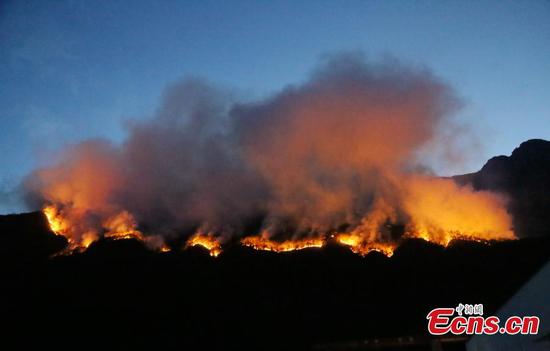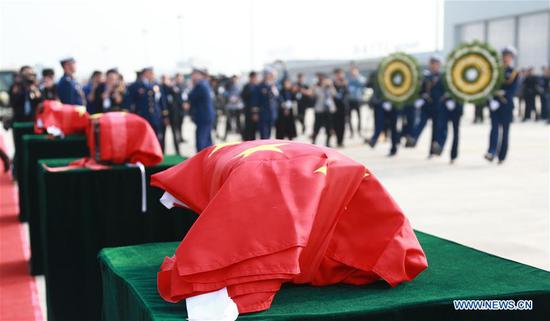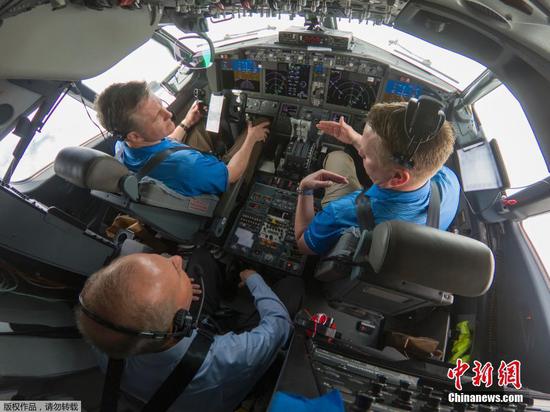The fatal crashes of two Boeing 737 MAX jets six months apart have set off a rush to file lawsuits against the manufacturer, subcontractors and the airlines.
Lawsuits alleging wrongful death, negligence and product liability have been filed in Chicago, Boeing's headquarters. A judge hearing the cases in Chicago or anywhere in the US could order them transferred to Indonesia or Ethiopia, sites of the crashes.
"The federal court is likely to delay doing anything at this point because the investigation is still in process," Robert Rabin, a law professor at Stanford University, told China Daily. "Probably, the court will postpone further action on the cases until circumstances of the accidents are clear. It seems every day that new information is coming out, and it's being leaked from different sources. It's too early to reach any conclusions at this point."
"The legal system in the United States tends to be more generous by way of awarding damages than anywhere in the world," Mark Dombroff, an attorney in Alexandria, Virginia, told China Daily. "There's a perception that juries in Cook County (Chicago) tend to be more generous giving plaintiffs awards than in other places."
Paul Bergman, a spokesman for Boeing in Chicago, said the company cannot comment on pending litigation.
"Boeing extends our heartfelt condolences and sympathies to the families and loved ones onboard Lion Air Flight 610 and Ethiopian Airlines Flight 302," he said in a statement.
If the cases are litigated individually, the outcomes and awards could vary greatly depending on the juries selected to hear the cases, including the skill of attorneys presenting the evidence against Boeing and the tenacity of the aircraft manufacturer's defense.
The cases also could be consolidated into a class action lawsuit, or Boeing could reach out-of-court settlements with family members of the victims.
Typically, a plaintiff's attorney takes such cases on a contingency fee basis. If the plaintiff wins, the attorney keeps about 40 percent of any award, nothing if the plaintiff loses.
A total of 346 passengers and crew died in the two crashes. Juries hearing the case will be asked to decide if a defect in the system led to the crashes, and if Boeing adequately informed airlines of the potential hazard.
Both the Ethiopian Airlines and Lion Air flights flew erratically after take-off, apparently after experiencing difficulty with an automated anti-stall device.
Neither airline involved in the crashes purchased optional safety equipment that may have kept the planes in the sky.
A preliminary report by Dagmawit Mogies, Ethiopia's minister of transportation, concluded the flight crew on the doomed March 10 flight from Addis Ababa followed Boeing's stated procedure in attempting to turn off the Maneuvering Characteristics Augmentation System (MCAS).
If the nose of a Boeing MAX jet rises, threatening a mid-air stall, the MCAS system automatically points the plane's nose down to gain speed needed to stay aloft. It's not certain the automated system sent the planes into fatal dives.
Family members of those killed in the Ethiopian Airlines crash may have a stronger legal claim because it followed the Lion Air crash. Plaintiffs' attorneys could argue that Boeing did not do enough to update software for the MCAS system and failed to disseminate the information quickly.
Families of those lost in the Lion Air crash said the airline invited them to a hotel a few weeks after the crash. They were offered about $91,600 each if they signed a release and agreed not to pursue legal action against Lion Air, its insurers, financial backers and Boeing. In addition, those accepting the offer were required to agree not to disclose terms of the payment.
However, Indonesian law specifies heirs receiving a government-mandated payment after a fatal crash do not give up their right to take legal action against the airline or others who may have been responsible.
On Sunday, American Airlines, citing "an effort to provide more certainty and avoid last minute flight disruptions", extended cancellations of MAX flights through June 5.
Boeing on Friday said it would cut its monthly production of 737 MAX planes by nearly 20 percent following the two deadly crashes, from 52 aircraft to 42, starting in mid-April.


















































